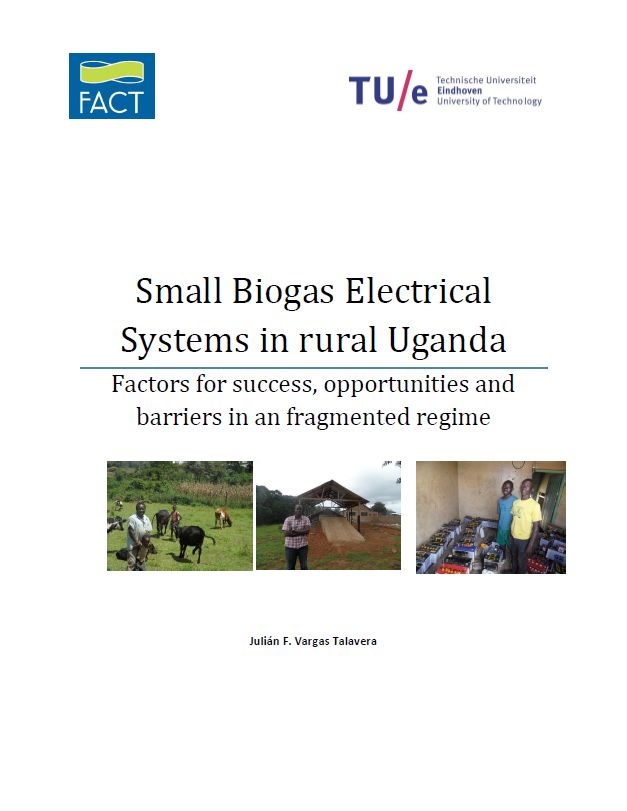Small Biogas Electrical Systems in rural Uganda

This report aims at helping FACT Foundation—and its innovation partners— understand which are the success factors that are needed to overcome the barriers present in the adoption of small electrical biogas systems (SBES) for productive activities by rural entrepreneurs in Uganda. In order to do so, the report offers a multi-level perspective analysis of the innovation system of biogas technologies in Uganda. The report also analyses the different roles that the rural entrepreneurs, who will adopt the technology, need to play in order to successfully use this type of technology.
The multi-level analysis shows that the innovation system is characterized by the isolation of the different projects that are currently working with biogas in Uganda. Even in the case of the projects that are supported by FACT there is no exchange of experience between projects. The analysis also shows how currently in the rural areas of Uganda access to electricity is gained through different technologies and that there is not a single way—a dominant design—present. Since there is an increasing demand for electricity in Uganda, the fact that there is no dominant design in the way to access electricity can be seen as an advantage for the biodigesters FACT is trying to promote. However this also poses a major problem, since the instability of the innovation system creates more uncertainty towards new technologies and can increase the risk of adopting new technology. The low purchasing power of the majority of the population creates another barrier for the dissemination of SBES. Based on innovation science literature the present report proposes that a first step to overcome these barriers could be to promote the formation of networks between different actors and stakeholders of the innovation system.
As for the different roles of the entrepreneur the analysis shows that targeting big farmers who have access to feedstock and can use the electricity they produce in their own productivity activity could be a promising way to start promoting SBES. Another important characteristic that the entrepreneurs need to have is to be willing to adapt the SBES to its new environment. However this adaptation process cannot be the done only by the entrepreneurs, since it requires external support. This support could be given by both a local partner—situated in the field— and FACT Foundation.
Considering its novelty the SBES still needs to go through a long adaptation process to test not only its technical features but also its socio-economic ones, such as the business model that the rural entrepreneur will use. Because of this the report ends by questioning if Uganda—giving its economic constraints— is the best setting for the initial phase of the adaptation process or if another country with a more developed economy would be a better starting point.
